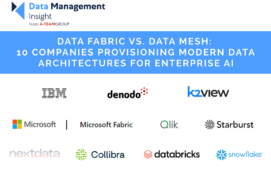Xenomorph, the analytics and data management solutions provider to global financial institutions, has today released its white paper ‘Rates, Curves and Surfaces – Golden Copy Management of Complex Datasets’. The white paper describes how, despite the increasing interest in risk management and tighter regulations following the crisis, the management of complex datasets – such as prices, rates, curves and surfaces – remains an underrated issue in the industry. One that can undermine the effectiveness of an enterprise-wide data management strategy, says Xenomorph.
In the wake of the crisis, siloed data management, poor data quality, lack of audit trail and transparency have become some of the most talked about topics in financial markets. People have started looking at new approaches to tackle the data quality issue that found many companies unprepared after Lehman Brothers’ collapse. Regulators – both nationally and internationally – strive hard to dictate parameters and guidelines.
In light of this, there seems to be a general consensus on the need for financial institutions to implement data management projects that are able to integrate both market and reference data. However, whilst having a good data management strategy in place is vital, the industry also needs to recognise the importance of model and derived data management.
”Rates, curves and derived data management is too often a neglected function within financial institutions”, says Brian Sentance, CEO Xenomorph. “What is the point of having an excellent data management infrastructure for reference and market data if ultimately instrument valuations and risk reports are run off spreadsheets using ad-hoc sources of data?”
In this evolving environment, financial institutions are becoming aware of the implications of a poor risk management strategy but are still finding it difficult to overcome the political resistance across departments to implementing centralised standard datasets for valuations and risk.
“The principles of data quality, consistency and auditability found in traditional data management functions need to be applied to the management of model and derived data too”, adds Sentance. “If financial institutions do not address this issue, how will they be able to deal with the ever-increasing requests from regulators, auditors and clients to explain how a value or risk report was arrived at?”
Subscribe to our newsletter




